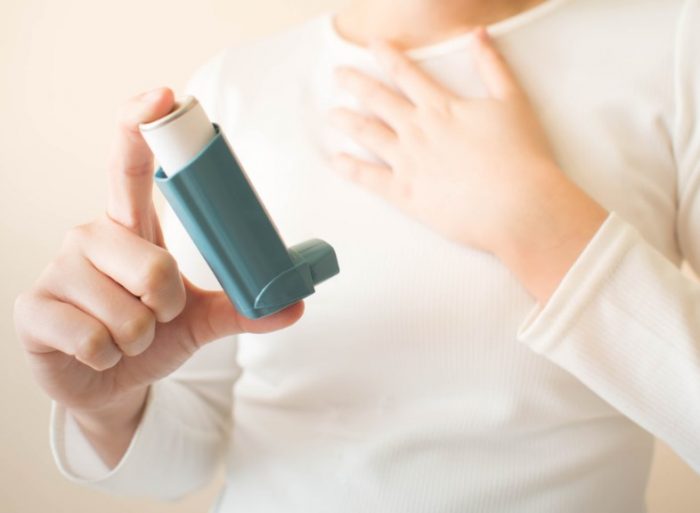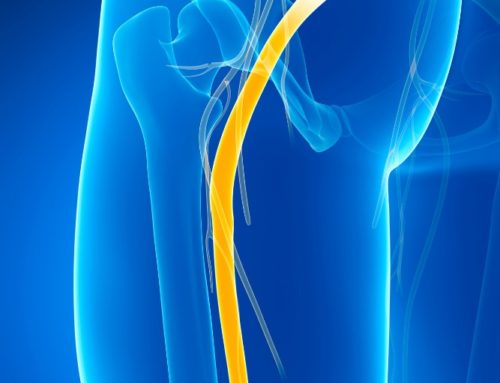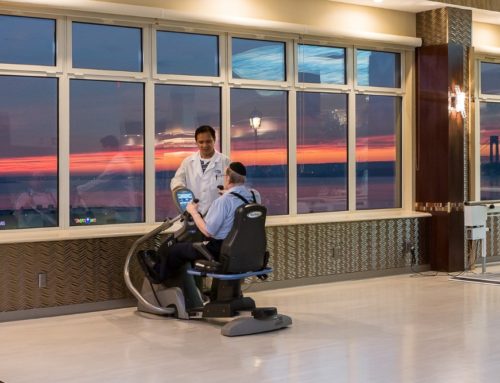Wheezing is a rasping sound you make when you breathe, and there are many different causes. Breathing supplies oxygen to the blood and keeps us alive so anything hampering this process is potentially very serious.
Having a clear airway—one unobstructed by mucus or an inflammation—is vital for your good health and well-being. Anyone who wheezes needs to seek medical advice and get the appropriate respiratory therapy and care. Wheezing can be especially serious for the frail and elderly, and those suffering from a serious illness.
Haym Salomon Home for Nursing & Rehabilitation in Brooklyn offers treatment for wheezing and other respiratory conditions. Contact us to find out more about the medical care we offer to those suffering from wheezing, its symptoms and causes.

What may cause wheezing?
It can be caused by many conditions, but asthma and chronic obstructive pulmonary disease are the most common. These cause a narrowing of, and/or spasms in, the small airways of your lungs. Other common ailments associated with wheezing include allergic reactions or a physical obstruction, such as a tumor.
People who have hay fever may often struggle to breathe normally and suffer from bouts of wheezing. Wheezing may be related to respiratory infections like acute bronchitis. People with heart conditions may also have difficulty breathing and find themselves wheezing.
Asthma, which is becoming more common globally due largely to urban air pollution, is a primary cause of wheezing. Asthma is an inflammation causing airways to narrow and can trigger muscle spasms in the wall of the airways. If you suffer from hay fever or other allergies try to avoid the triggers that make you wheeze.
The list of possible causes of wheezing is long and includes congestive heart failure, and pneumonia. Bronchitis, epiglottis (a swelling on the windpipe) and sleep apnea, (stop-start breathing during sleep) are other possible causes.
Smoking aggravates wheezing
Smoking may cause wheezing or aggravate it. If you are a smoker and show any signs of wheezing, you would be best to stop smoking immediately. Cigarette smoke contains toxic chemicals which are known to damage the lungs.
People of all ages who are prone to wheezing should stay away from traffic fumes. Avoid long journeys in heavy traffic and seek out parks, gardens and green spaces where the air is cleaner.
Is wheezing serious?
People who have done First Aid know that the number one priority in life saving is maintaining an open airway. Any blockage of the airway prevents oxygen reaching vital organs and is life-threatening. Wheezing is an indication that your breathing is being hampered in some way, so it’s a serious condition.
Wheezing signs
If you are experiencing a shortness of breath and you notice a whistling sound, you are probably wheezing. Some diseases or conditions, such as emphysema, can cause a narrowing of the airway.
The slight hissing noise made when you breathe is because air is being forced through a narrowed or constricted airway. Tightness in the chest and difficulty exhaling are further signs that you are wheezing.
A bluish tinge to your skin or finding yourself mentally disorientated are other signs of wheezing or breathing difficulties. Coughing is a sign that your airway is being obstructed in some way.
This content comprises informative and educational resources only and can not be considered as a substitute for professional health or medical guidance. Reliance on any information provided in this article is solely at your own risk. If you have any inquiries or apprehensions about your medical condition or health goals, talk with a licensed physician or healthcare provider.






Leave A Comment